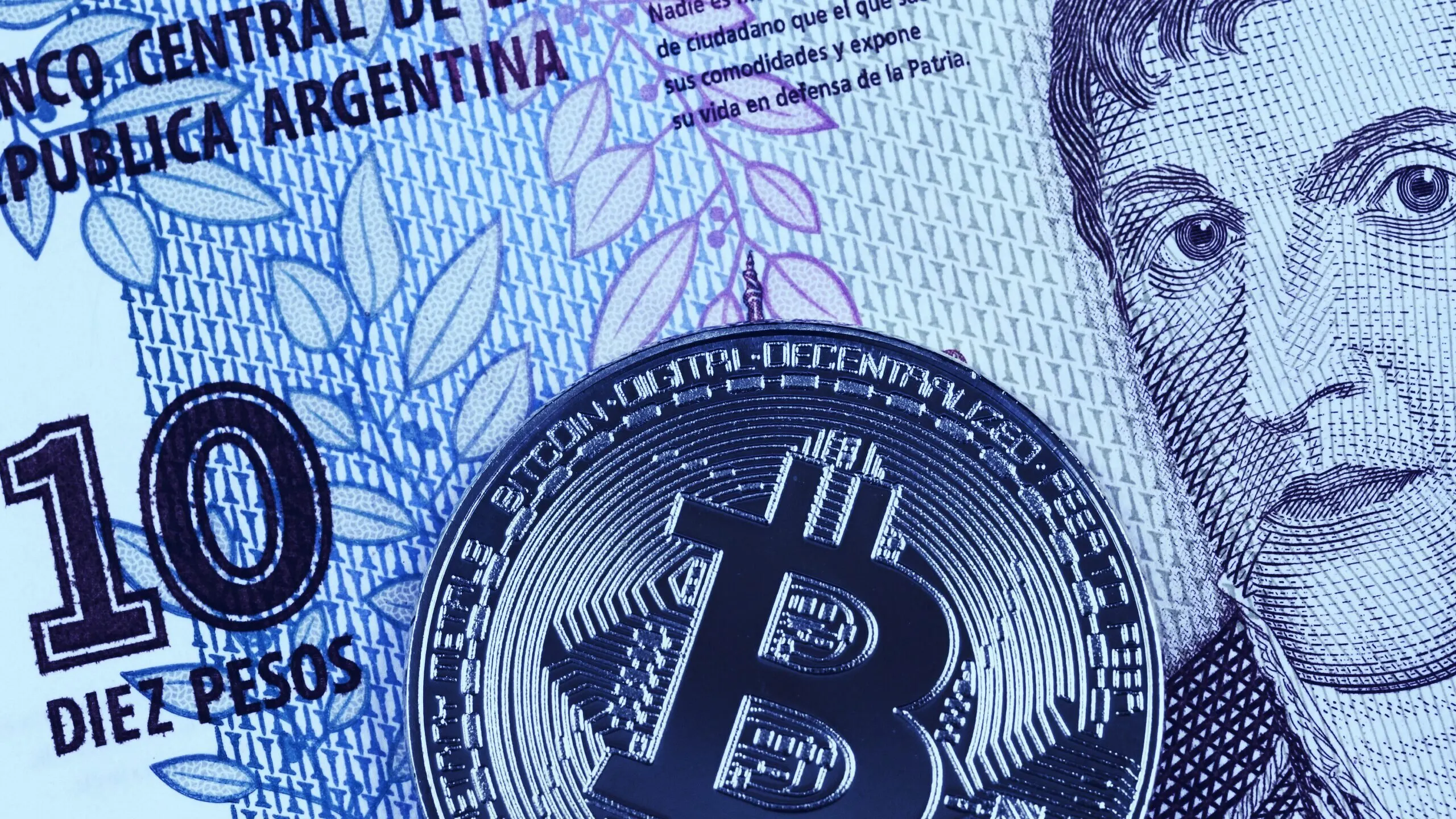🇦🇷 Welcome, Argentina! 🇦🇷
Today, we launch a superior financial experience to a country that faces hyperinflation, predatory payment networks, and unusable cross-border transfers
Today, we use the world's open monetary network, #Bitcoin, to give hope to the people of Argentina pic.twitter.com/Z2RYLxmKSL
— Jack Mallers (@jackmallers) January 11, 2022
Coin Prices
BTC
$68,183.00
4.03%ETH
$2,062.88
7.80%XRP
$1.44
4.77%BNB
$627.91
4.35%USDC
$0.999901
0.01%SOL
$87.90
6.55%TRX
$0.286367
-0.08%DOGE
$0.10006
7.09%FIGR_HELOC
$1.031
-0.24%WBT
$50.93
4.00%ADA
$0.293846
9.31%BCH
$499.98
1.49%USDS
$0.999896
0.00%LEO
$8.79
1.25%HYPE
$28.48
5.79%CC
$0.17502
8.03%LINK
$9.26
8.14%XMR
$346.41
2.60%USDE
$0.999822
0.01%XLM
$0.163818
6.37%USD1
$0.998952
-0.07%RAIN
$0.00954812
1.59%HBAR
$0.102581
5.28%LTC
$56.21
6.31%PYUSD
$0.999656
-0.03%ZEC
$245.36
2.27%AVAX
$9.36
8.11%SUI
$0.957943
7.18%SHIB
$0.00000614
2.63%WLFI
$0.117539
2.64%CRO
$0.078202
3.61%TON
$1.28
-1.29%DOT
$1.61
24.90%XAUT
$5,156.46
-0.17%UNI
$4.07
14.80%PAXG
$5,191.07
-0.20%M
$1.36
-4.63%MNT
$0.651016
8.25%BUIDL
$1.00
0.00%USYC
$1.12
-0.00%TAO
$187.25
6.62%USDF
$0.997585
-0.01%AAVE
$115.12
-2.60%ASTER
$0.711364
2.06%PEPE
$0.00000403
1.20%OKB
$78.65
4.02%USDG
$1.00
0.04%SKY
$0.070211
5.40%PI
$0.16826
1.96%RLUSD
$0.999853
-0.02%BGB
$2.23
0.59%HTX
$0.00000162
-1.61%NEAR
$1.14
13.02%ETC
$9.04
6.91%ONDO
$0.273116
6.57%BFUSD
$0.999159
-0.03%ICP
$2.40
9.25%WLD
$0.409673
2.64%POL
$0.110867
-3.53%USTB
$11.00
0.01%KCS
$8.65
1.28%GT
$7.15
3.46%PUMP
$0.00183422
4.91%NIGHT
$0.060039
4.47%ATOM
$1.92
-6.36%QNT
$64.62
-0.80%HASH
$0.01706757
1.72%ENA
$0.113642
11.66%PIPPIN
$0.847709
8.57%NEXO
$0.855935
2.65%KAS
$0.03165613
7.41%USDTB
$1.00
0.09%FLR
$0.00974079
4.22%TRUMP
$3.53
2.94%ALGO
$0.090077
4.85%EUTBL
$1.24
0.10%RENDER
$1.47
5.40%FIL
$1.012
10.88%USDD
$1.00
0.04%OUSG
$114.41
0.01%APT
$0.966336
12.86%JAAA
$1.027
0.00%USDY
$1.12
1.23%XDC
$0.03530349
6.33%MORPHO
$1.86
4.03%VET
$0.00771674
6.57%STABLE
$0.03555937
24.66%BDX
$0.080319
0.12%ARB
$0.100801
7.17%JTRSY
$1.096
0.01%USD0
$0.998162
0.17%BONK
$0.00000635
6.91%JUP
$0.158826
6.60%KITE
$0.299035
14.40%GHO
$1.00
0.02%DCR
$30.29
8.54%A7A5
$0.01288357
-0.70%TUSD
$0.999209
-0.01%STX
$0.263442
6.43%SEI
$0.070793
3.60%FTN
$1.087
-0.18%VIRTUAL
$0.703594
-0.78%USDAI
$0.999853
0.00%EURC
$1.18
0.18%PENGU
$0.00717171
6.25%DASH
$35.23
4.86%CAKE
$1.32
4.33%XTZ
$0.394749
5.32%JST
$0.04686908
2.10%KAU
$166.18
-0.33%ETHFI
$0.521838
2.16%FDUSD
$1.00
0.04%CRV
$0.25253
6.41%FET
$0.16502
5.41%LIT
$1.48
6.33%CTM
$0.084859
5.90%IP
$1.041
1.17%CHZ
$0.03403395
0.11%USX
$0.999741
0.01%AERO
$0.378078
12.52%GNO
$130.33
5.60%PRIME
$1.019
0.04%BTT
$0.00000034
2.09%KAIA
$0.056867
4.38%NFT
$0.00000033
0.49%POWER
$1.57
118.62%BSV
$16.36
2.10%INJ
$3.21
0.73%ZRO
$1.58
6.00%SUN
$0.01626057
-1.57%ADI
$3.21
1.00%SIREN
$0.441612
18.49%PYTH
$0.052988
1.30%IOTA
$0.070694
4.79%TIA
$0.341956
8.69%SPX
$0.325066
8.00%JASMY
$0.00603329
4.28%GRT
$0.02732192
3.70%CRVUSD
$1.002
0.57%FLOKI
$0.0000299
3.56%OHM
$17.56
2.44%SYRUP
$0.236817
5.03%2Z
$0.078458
3.89%LDO
$0.321791
5.14%FRAX
$0.983674
-0.61%CFX
$0.051319
3.00%HNT
$1.42
2.45%OP
$0.123724
4.83%BTSE
$1.59
-1.28%TEL
$0.00269955
4.56%H
$0.136259
-1.95%ENS
$6.42
4.58%AB
$0.00245777
-0.98%STRK
$0.04455201
6.38%MON
$0.02230486
10.26%SAND
$0.08622
6.63%NUSD
$0.998686
0.04%AXS
$1.35
3.82%UDS
$1.83
6.02%XPL
$0.098108
10.98%YLDS
$1.00
0.00%USDA
$0.985532
-0.29%AUSD
$0.999897
0.01%USTBL
$1.075
0.01%PENDLE
$1.30
2.22%WIF
$0.213411
7.93%ZBCN
$0.00215148
1.71%TWT
$0.501812
-1.63%BCAP
$22.79
0.00%APEPE
$0.00000098
2.34%FT
$0.098152
0.06%LUNC
$0.00003645
2.34%ULTIMA
$5,238.44
-0.38%NEO
$2.80
5.54%THETA
$0.197305
7.53%BARD
$0.871784
13.49%VSN
$0.053844
2.23%BORG
$0.196283
-2.04%RIVER
$9.89
5.54%MANA
$0.098329
6.66%PC0000031
$1.00
0.00%TIBBIR
$0.188986
4.45%FF
$0.080008
3.18%VVV
$4.23
7.67%ZK
$0.02002001
0.13%XCN
$0.00489084
1.76%FDIT
$1.00
0.00%COMP
$18.56
2.60%GALA
$0.00377823
6.18%BAT
$0.116102
-3.42%IUSD
$0.999399
-0.02%CVX
$1.88
3.20%REAL
$0.054905
5.99%FARTCOIN
$0.170659
9.08%FLUID
$2.14
5.72%RAY
$0.625217
3.49%SENT
$0.02316617
-3.31%DEXE
$3.55
2.78%MX
$1.80
0.52%9BIT
$0.02000203
-0.76%WFI
$2.03
-2.09%KOGE
$48.00
0.02%S
$0.04197669
5.03%SATUSD
$0.994854
-0.08%XEC
$0.0000079
3.85%EURS
$1.26
-0.08%GUSD
$1.002
0.16%TRAC
$0.332774
5.66%USDF
$0.998348
0.02%GLM
$0.148028
-1.74%IMX
$0.171715
3.29%RUNE
$0.41277
3.22%THBILL
$1.012
-0.13%WEMIX
$0.302997
-0.16%0G
$0.652025
0.62%B
$0.137291
9.41%1INCH
$0.096206
6.26%EGLD
$4.55
3.04%A
$0.082009
1.40%BERA
$0.619329
0.10%COCO
$0.13281
3.59%SFP
$0.263563
2.83%ACRED
$1,096.46
-0.11%RLB
$0.074262
-2.47%WAL
$0.079528
5.19%COW
$0.227513
3.68%JTO
$0.287982
-0.63%GOMINING
$0.312125
-2.28%MWC
$11.43
2.18%AMP
$0.00148944
2.11%SNX
$0.363237
-0.44%KTA
$0.251562
0.75%SKR
$0.02173892
-5.80%LION
$0.00404073
2.29%OZO
$0.130029
-0.35%EIGEN
$0.201687
3.41%PUSD
$1.001
0.00%GRX
$12.43
7.49%LPT
$2.37
2.31%DOLA
$0.995671
0.02%BMX
$0.337143
2.35%QRL
$1.46
1.01%UB
$0.04572561
11.99%FRXUSD
$0.99976
-0.04%REUSD
$1.063
0.10%BAN
$0.112921
-6.62%CUSD
$0.968468
-2.10%AR
$1.72
-11.10%
